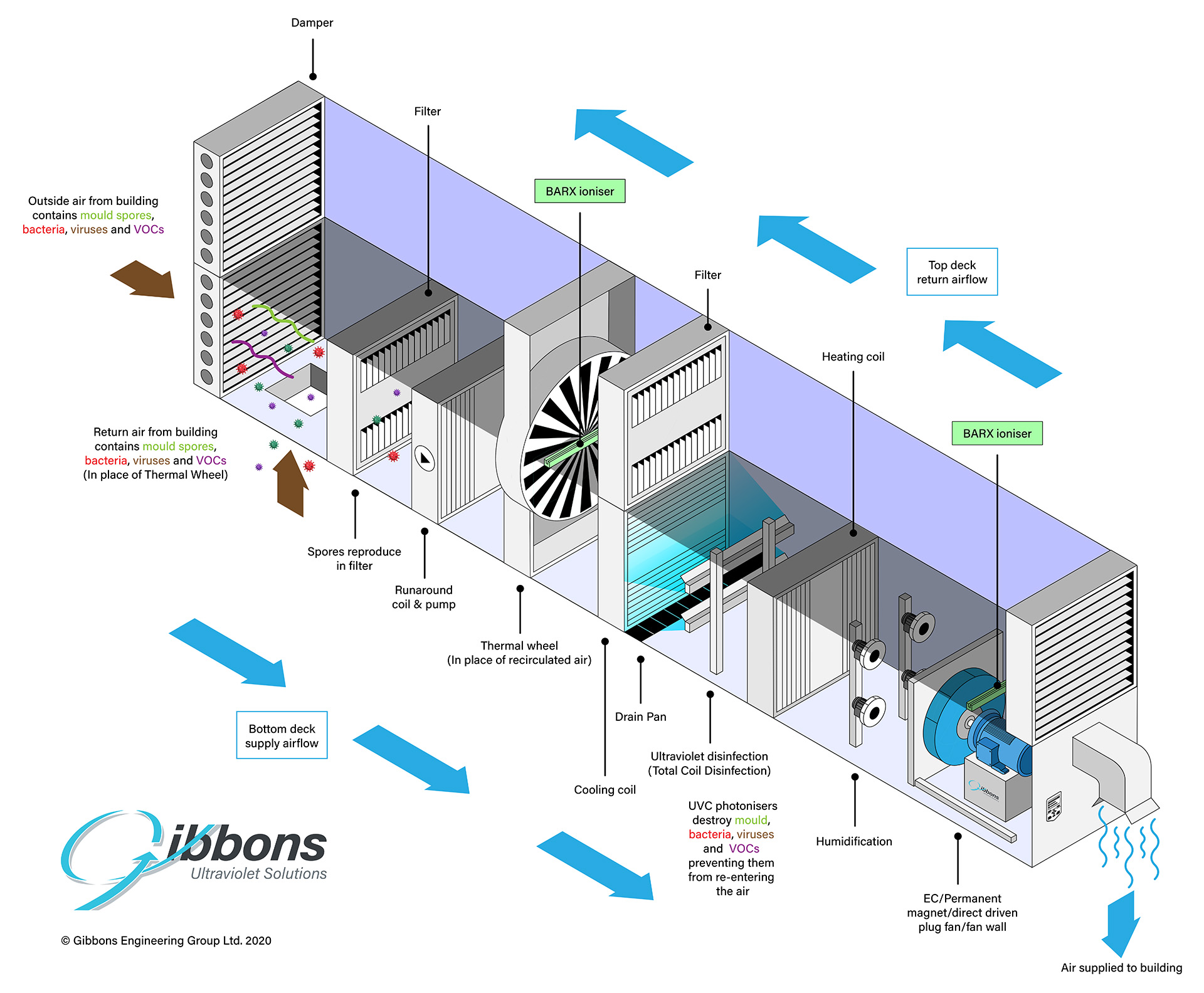
Have you ever walked into a stuffy classroom or hospital room and wondered why the air feels so stale? It could be because of an HVAC system that’s been neglected for too long. While it may be easy to overlook routine maintenance, neglecting your heating, ventilation, and air conditioning (HVAC) system in schools and hospitals can lead to much more than just uncomfortable temperatures. In fact, hidden dangers come with ignoring the care of these systems – from poor indoor air quality to potentially deadly consequences. Let’s take a closer look at the risks involved when we neglect our HVAC systems in critical buildings such as schools and hospitals.
What is an HVAC System and Why is it Important?
An HVAC system is a vital part of any large building, providing heating, ventilation, and air conditioning to the building. Unfortunately, many schools and hospitals neglect their HVAC systems, which can lead to several problems.
Neglecting the air handling unit (AHU) within an HVAC system can lead to a build-up of biofilm, which can eventually cause the system to break down. This can be extremely expensive to fix and cause disruptions to the school or hospital’s operations. In addition, a build-up of biofilm can also lead to poor indoor air quality, which can exacerbate respiratory problems for students and staff. Biofilm can cause serious health problems for those with allergies or asthma and can also damage the cooling coil within the AHU.
It is essential that schools and hospitals take care of their HVAC systems to avoid these dangers. Regular maintenance and repairs will help keep the system running smoothly and prevent costly breakdowns.

Factors Contributing to Poor Indoor Air Quality in Schools and Hospitals
There are many factors that can contribute to poor indoor air quality in schools and hospitals. One of the most common is a lack of proper ventilation. This can be due to several reasons, such as a building being too old or not having enough vents. Poor ventilation can lead to a build-up of contaminants in the air, which can cause health problems for those who are exposed to it.
The easiest way to combat this is to keep windows open to allow fresh air to enter the building. This is fine during warmer days but can obviously become a problem during the winter period.
Another factor that can contribute to poor indoor air quality is the use of harmful chemicals and cleaning products. These can release toxins into the air, which people can breathe in and lead to health problems. These growths can release spores into the air, which can cause respiratory problems for those who are exposed to them.
Health Impacts of Neglecting an HVAC System
If you’re like most people, you don’t give much thought to your HVAC system – until it stops working. But neglecting your HVAC system can have serious consequences.
Poor indoor air quality can lead to a host of health problems, including respiratory infections, headaches, and fatigue. That’s why ensuring your HVAC system is properly maintained is so important.
Preventative Maintenance Programs
When it comes to a healthy HVAC system, preventative maintenance is key. Without regular servicing, several problems can arise. A preventative maintenance program helps ensure your HVAC system runs efficiently and effectively. These programs typically include regular inspections and tune-ups, as well as filters and parts replacement as needed. By catching potential problems early on, you can avoid more costly repairs down the road.
Energy costs are another important factor to consider when it comes to HVAC systems. A poorly maintained system must work harder to meet the heating and cooling needs of a building, leading to higher energy bills. A preventative maintenance program can help keep your energy costs down by keeping your system running at peak efficiency.
The Solution
At Gibbons Engineering Group, we have expert HVAC engineers that are experienced in maintenance work for all types of air handling units. Our ultraviolet solutions division also provides technology that uses UV light to clean the cooling coil within the air handling unit. Total Coil Disinfection uses UV lamps to prevent the build-up of mould and biofilm on the cooling coil, which often reduces the efficiency of the air handling unit.
Contact Andrew Knight for more information about our HVAC services. andrew@gibbonsgroup.co.uk






